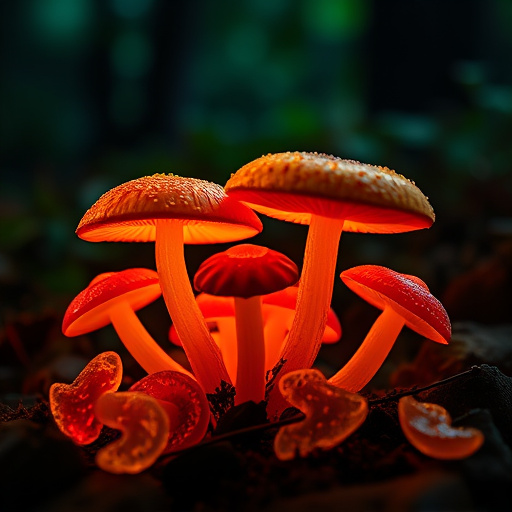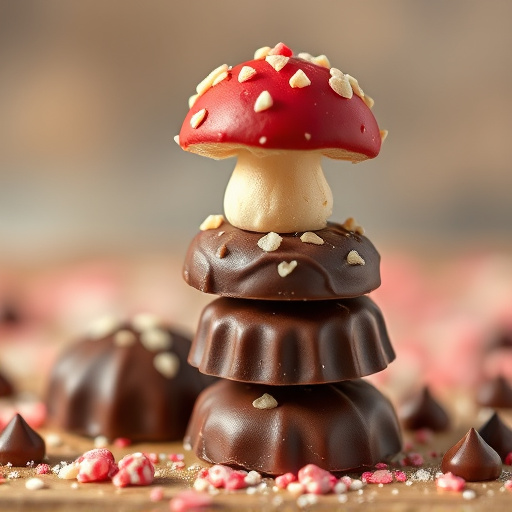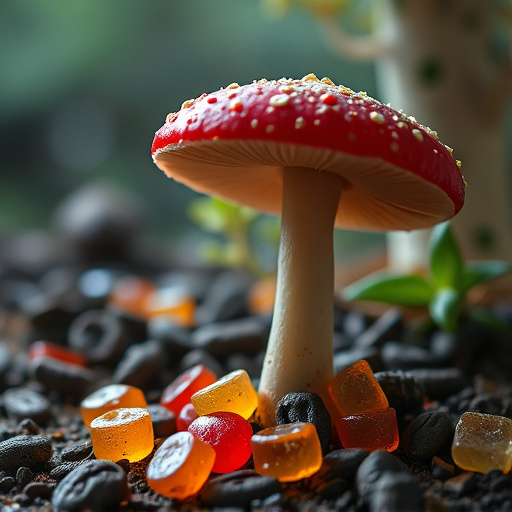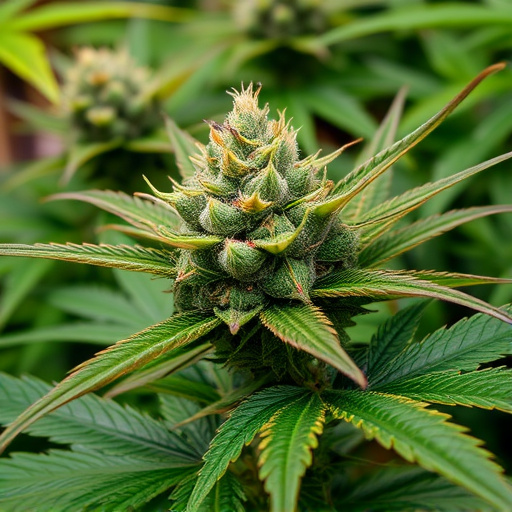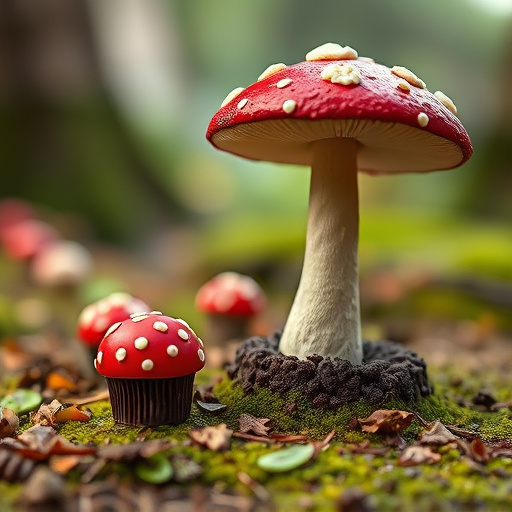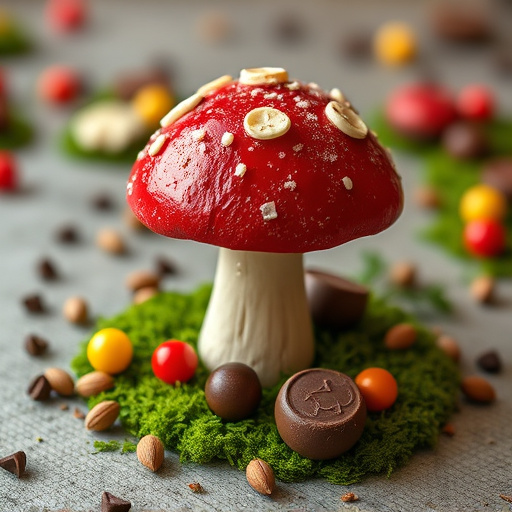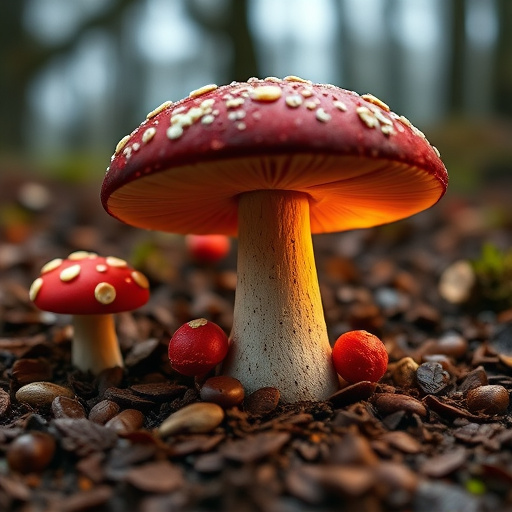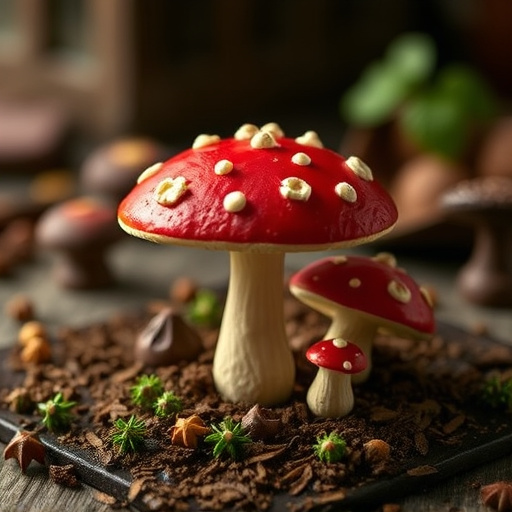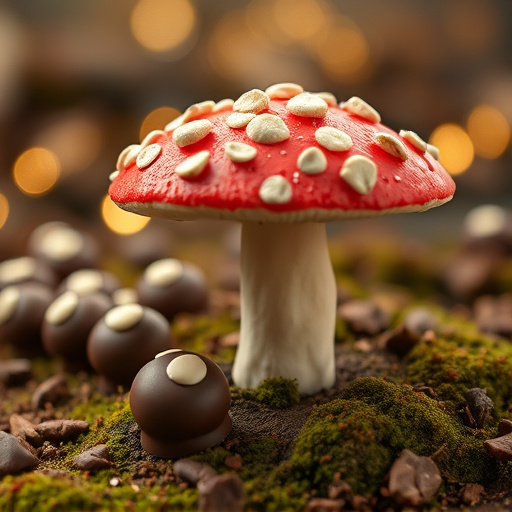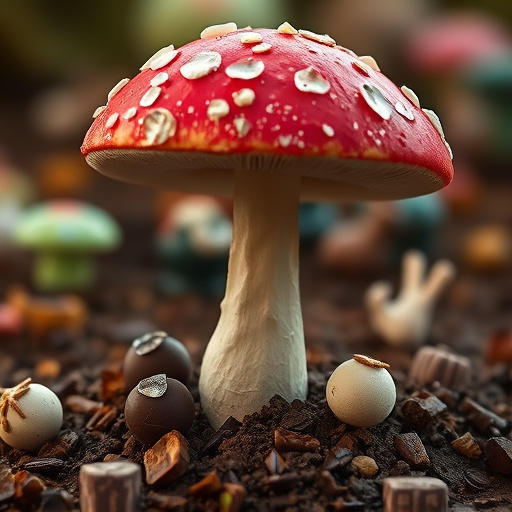Magic mushroom chocolates, created by infusing psilocybin mushrooms into chocolate treats, offer a discreet way to experience altered states of consciousness and heightened sensory perception. With historical roots in indigenous cultural rituals and modern applications in consciousness exploration, these chocolates enhance dopamine levels, intensifying emotional responses and potentially contributing to profound, life-changing experiences.
“Unveiling the World of Magic Mushroom Chocolates: A Delicate Dance of Psychology and Taste
Magic mushroom chocolates have emerged as an intriguing fusion of nature’s psychedelics and confectionery delight. Psilocybin, the active compound found in certain mushrooms, has captivated both scientists and enthusiasts for its profound effects on brain chemistry, particularly dopamine levels. This article delves into the science behind psilocybin’s interaction with the brain, explores the art of infusing it into chocolates, and examines the potential therapeutic benefits while emphasizing responsible consumption. Prepare to embark on a sensory journey through this unique culinary experience.”
- Understanding Magic Mushrooms and Their Effects
- – A brief overview of magic mushrooms (psilocybin) and their natural occurrence.
- – The history and cultural significance of psychedelic mushrooms.
Understanding Magic Mushrooms and Their Effects
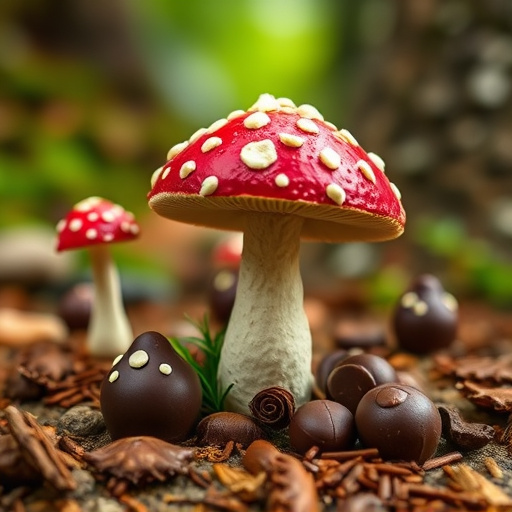
Magic mushrooms, scientifically known as psilocybin mushrooms, are fungi that contain psychotropic compounds, primarily psilocybin and psilocin. These compounds act on serotonin receptors in the brain, leading to altered perceptions, heightened creativity, and intense emotional experiences. When consumed, magic mushrooms can induce a range of effects, from visual distortions and enhanced senses to profound spiritual insights and mystical encounters.
In terms of dopamine levels, magic mushroom chocolates—a delightful fusion of psychedelic compounds with chocolate—can significantly impact the brain’s reward system. Dopamine is a neurotransmitter associated with pleasure and motivation. Psilocybin has been shown to increase dopamine activity, which can result in heightened euphoria, increased focus on sensory experiences, and an overall intensification of emotional responses. This effect may contribute to the profound and often life-changing experiences that some users report from consuming magic mushroom chocolates.
– A brief overview of magic mushrooms (psilocybin) and their natural occurrence.
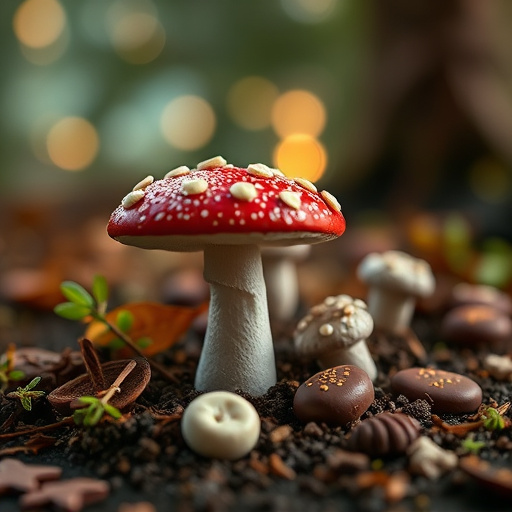
Magic mushrooms, scientifically known as psilocybin mushrooms, are a type of fungi that produce powerful psychoactive compounds, primarily psilocin and psilocybin. These compounds have been used for centuries in various cultures for their mind-altering effects. When consumed, they can induce altered states of consciousness, heightened sensory perception, and profound psychological experiences.
Psilocybin is naturally occurring in over 200 species of mushrooms worldwide, often found growing wild in forest environments. The active compounds are stored in a dry form within the mushroom’s cap, waiting to be activated when consumed. Magic mushroom chocolates are essentially edible forms infused with psilocybin, offering a unique and discreet way to experience their effects. By incorporating these natural compounds into chocolate treats, consumers can enjoy the potential benefits while indulging in a delicious snack, all while keeping dopamine levels elevated and exploring altered states of mind.
– The history and cultural significance of psychedelic mushrooms.
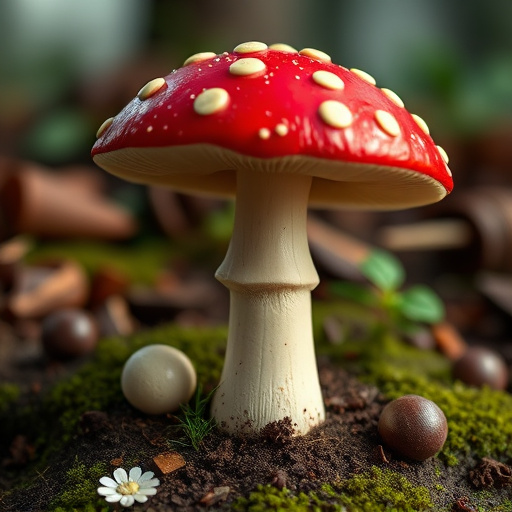
Psychedelic mushrooms, or magic mushrooms, have a rich history that stretches back centuries in various cultures worldwide. Their use dates back to ancient times when indigenous communities incorporated them into spiritual rituals and traditional medicine. These fungi, with their potent psilocybin compound, were revered for their ability to induce altered states of consciousness and facilitate profound psychological experiences.
In many cultural contexts, psychedelic mushrooms hold significant spiritual and symbolic value. They are often associated with vision quests, spiritual guidance, and enhanced self-awareness. The indigenous peoples of Mesoamerica, for example, used them in sacred ceremonies to communicate with the spirit world. Similarly, in modern times, magic mushroom chocolates have emerged as a novel way to experience the effects of psychedelic compounds while offering a more accessible and palatable form, appealing to those seeking to explore their consciousness and potentially boost dopamine levels through alternative means.
Magic mushroom chocolates represent a modern twist on an ancient tradition, combining the psychological effects of psilocybin with the delicious allure of chocolate. By infusing these mushrooms into a edible form, individuals can experience the potential therapeutic benefits while indulging in a delectable treat. Research suggests that psilocybin can interact with dopamine levels in the brain, leading to enhanced mood and creativity. However, it’s crucial to approach magic mushroom chocolates with caution and under professional guidance due to their potent effects.
